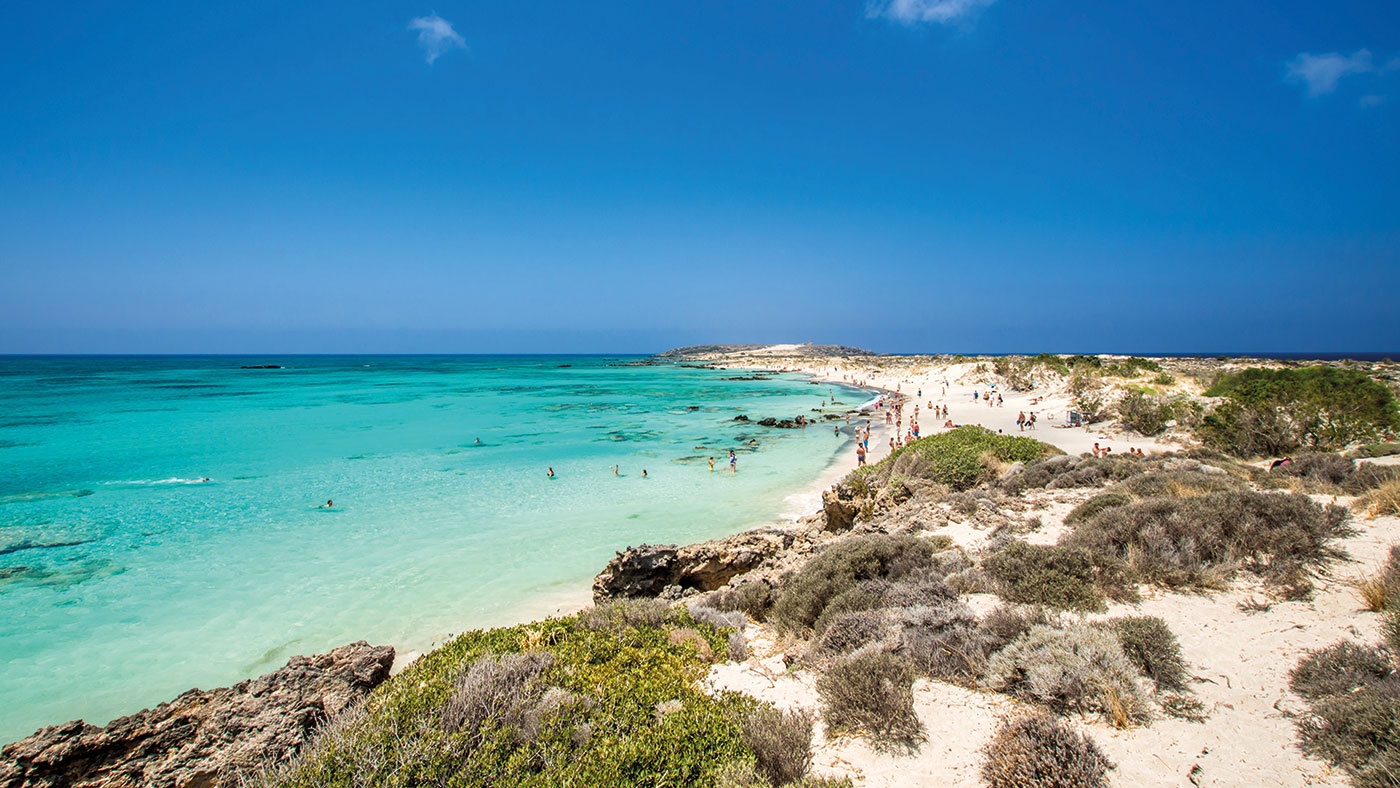How holidaymakers can avoid the latest villa scams
Barclays finds that 37% of people scammed by bogus holiday firms lose over £1,000

A free daily email with the biggest news stories of the day – and the best features from TheWeek.com
You are now subscribed
Your newsletter sign-up was successful
Potential holidaymakers are being advised to keep an eye out for villa scams which have cost tourists thousands of pounds.
How to make sure you don't fall victim to £12m holiday scam What is push fraud and how can you avoid it? New trends in investment scams
A new report from Barclays, which looked at first-hand accounts of scammed customers, found that more than a third (37%) lost between £1,000 and £5,000.
Sky News reports that holiday scams most frequently involve criminals using fake property details to trick travellers into sending them money, or stealing the identifying details of a real rental property and pretending they own it.
The Week
Escape your echo chamber. Get the facts behind the news, plus analysis from multiple perspectives.

Sign up for The Week's Free Newsletters
From our morning news briefing to a weekly Good News Newsletter, get the best of The Week delivered directly to your inbox.
From our morning news briefing to a weekly Good News Newsletter, get the best of The Week delivered directly to your inbox.
Barclays found that of those who had been conned, more than a third (36%) were aged 30 to 44 years old, and 59% were women.
“Trying to escape those January blues may seem like an appealing prospect, but fraudsters are preparing to take advantage of sun seekers at this time of year,” said Ross Martin, head of digital safety at Barclays. “We must all be aware of the risks and make sure we are carrying out proper safety checks to ensure our online security and enjoy a scam-free holiday.”
Another survey of 2,000 people by Barclays that also featured in the report found that 55% of holidaymakers said they would not be put off booking a holiday even if it seemed “too good to be true”.
Furthermore, 14% of those surveyed said they would still book holiday accommodation “despite knowing there was a risk of being scammed”, while 26% would be “prepared to put themselves at risk” to acquire a low price.
A free daily email with the biggest news stories of the day – and the best features from TheWeek.com
Identifying risks in the first place appears to be an issue for many people, with 43% of respondents saying they would not feel at risk if asked to transfer money for a holiday via bank transfer rather than through a secure payment online. And just 45% said they would check their booking is with a member of a consumer protection scheme trade body, such as Atol or Abta.
Mark Tanzer, Abta chief executive, said of the report’s finding: “Abta sees at first-hand the damage caused by travel fraudsters with the many devastated customers who contact us for advice after they find out their much-anticipated holiday or trip to visit loved ones may not actually exist.
“The cost to them is not just financial; this crime causes very real disappointment and emotional distress.”
Barclays offers the following tips to avoid getting scammed while booking a holiday:
- Think about whether the offer is too good to be true.
- Do an internet search on the location. Yahoo News notes that “if the villa in question appears to be advertised by other companies under another name, this may also be a warning sign”.
- Are they asking you to pay by transfer? If so, do not go ahead with the transaction.
- Look for companies that have a real location and real phone numbers. Double-check any contact information you are supplied online.
- Before you commit to anything, stop and take time to think.
-
 Local elections 2026: where are they and who is expected to win?
Local elections 2026: where are they and who is expected to win?The Explainer Labour is braced for heavy losses and U-turn on postponing some council elections hasn’t helped the party’s prospects
-
 6 of the world’s most accessible destinations
6 of the world’s most accessible destinationsThe Week Recommends Experience all of Berlin, Singapore and Sydney
-
 How the FCC’s ‘equal time’ rule works
How the FCC’s ‘equal time’ rule worksIn the Spotlight The law is at the heart of the Colbert-CBS conflict
-
 Epstein files topple law CEO, roil UK government
Epstein files topple law CEO, roil UK governmentSpeed Read Peter Mandelson, Britain’s former ambassador to the US, is caught up in the scandal
-
 Iran and US prepare to meet after skirmishes
Iran and US prepare to meet after skirmishesSpeed Read The incident comes amid heightened tensions in the Middle East
-
 Israel retrieves final hostage’s body from Gaza
Israel retrieves final hostage’s body from GazaSpeed Read The 24-year-old police officer was killed during the initial Hamas attack
-
 China’s Xi targets top general in growing purge
China’s Xi targets top general in growing purgeSpeed Read Zhang Youxia is being investigated over ‘grave violations’ of the law
-
 Panama and Canada are negotiating over a crucial copper mine
Panama and Canada are negotiating over a crucial copper mineIn the Spotlight Panama is set to make a final decision on the mine this summer
-
 Why Greenland’s natural resources are nearly impossible to mine
Why Greenland’s natural resources are nearly impossible to mineThe Explainer The country’s natural landscape makes the task extremely difficult
-
 Iran cuts internet as protests escalate
Iran cuts internet as protests escalateSpeed Reada Government buildings across the country have been set on fire
-
 US nabs ‘shadow’ tanker claimed by Russia
US nabs ‘shadow’ tanker claimed by RussiaSpeed Read The ship was one of two vessels seized by the US military